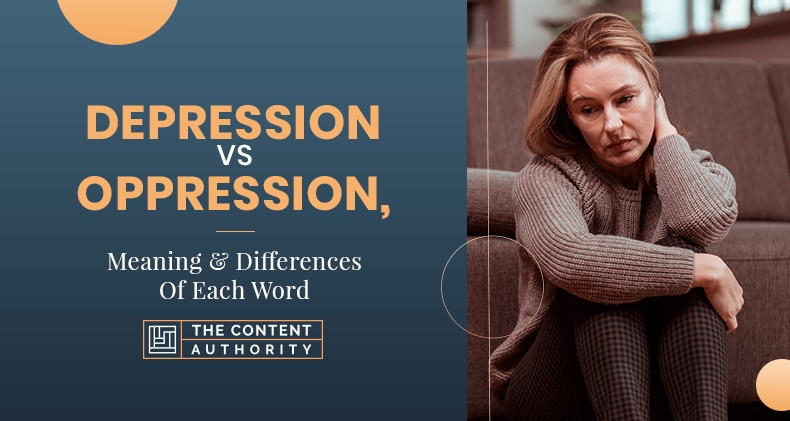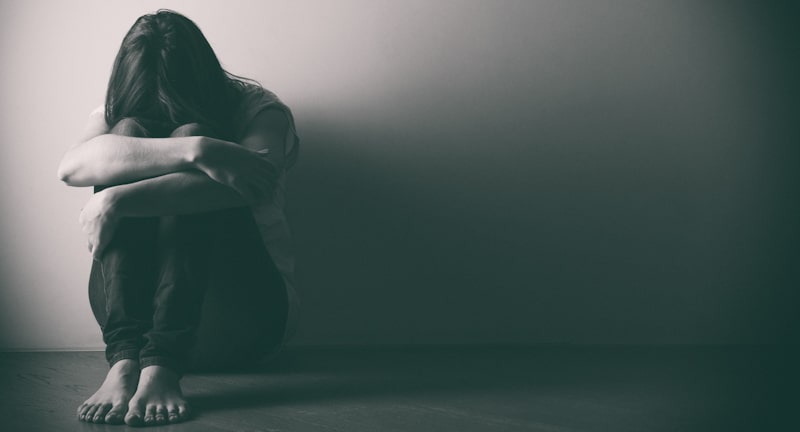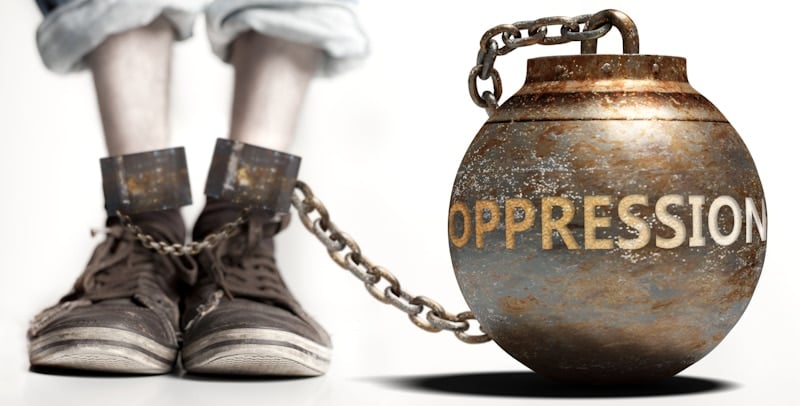These words are spelled almost the same way. You probably have seen them in current media reports. In the past few years, oppression became a trending word. We will answer any questions you might have about the meaning of each of these words and how they are different.
Depression is a psychiatric illness caused by a brain chemical imbalance. Oppression is the misuse of power to mistreat someone. The difference is that oppression is usually exerted on minorities, while depression can affect anyone regardless of their social status.
Some authors claim oppression can lead to depression. We understand it is possible because prolonged cruelty can affect a person’s state of mind. We created this article from an informative standpoint. We don’t pretend to invalidate a psychiatrist’s diagnosis of depression or anyone’s perception of oppression.
Understanding The Terms Depression And Oppression
Let’s see more detailed information about the linguistic rules behind these two words.
Etymology
The word “oppression” was incorporated into English by the 15th century from the French word “oppress.” The French got it from the Latin “oppressio,” which means “pressed against something.”
“Depression” was adopted from the Latin term “deprimere” in the 15th century as well, which means “being pressed down.”
Meaning
If you look into the dictionary, some of the definitions you will find for the word “depression” are:
- A state of unhappiness and hopelessness
- Lack of interest or activities
The word “oppression” is defined as:
- A situation in which people don’t have the same opportunities as the rest
- Feeling overwhelmed by the conditions they are in
How People Use The Term “Depression”
People use the term “depression” in other areas. Let’s see some of them.
In Economics
We use the term economic depression when an economy is going through years of turbulence. During a depression, a country cannot produce goods and services efficiently.
Experts in economic science claim that there has only been one depression in modern human history. They are referring to the Great Depression that started in 1929.
Another similar term is “recession.” The difference is that a recession lasts less than a year.
In Meteorology
The term “depression” in meteorology refers to an area on the globe where there is low pressure. It causes the water vapors to condense and form clouds and eventually leading to rain, snow, hail, and sleet.
Tropical depressions can become hurricanes if their winds circulate at more than 74mph.
In Mathematics
An angle of depression is the angle below a horizontal line. Therefore, it goes downwards from the object you are looking at.
How People Use The Term “Oppression”
Depending on the source, you may find different types of oppression. For example, some authors typify oppression as ideological, internalized, institutional, and interpersonal. Other authors talk about moral exclusion and cultural imperialism.
What most authors agree on is that minorities are usually affected by oppression.
“Oppression” is a broad term that often includes at least one of the following:
- Ableism
- Ageism
- Sexism
- Colorism
- Classism
- Cisnormativity
- Colonialism
- Lookism
- Racism
- Sizeism
Pronunciation Similarities
Both words share a similar pronunciation because they come from the same root word -pression. The main difference would be the first syllable.
In the word “depression,” we have a /d/ sound as in “dog” followed by the /p/ sound. The letter “e” is a schwa sound because it is not stressed.
In the case of the word “oppression,” we start with a schwa sound as well. The fact that we have two Ps doesn’t make any difference to the following sounds.
The next syllable is the stressed syllable. It starts with the /p/ sound, followed by /r/ and ending with the open /ɛ/ sound. This vowel is the same as in the word “bed.”
In the final syllable -sion, we have a schwa sound again. The “i” and “o” make no strong sound whatsoever.
Society’s Perception Of Clinical Depression
Depression is a medical condition and has to be diagnosed by a therapist. Some people think there’s something called “normal depression,” but there’s nothing typical about feeling deeply sad.
Experts understand depression alters the neurotransmitters in your brain. However, the causes can vary individually. Sometimes we find people who seem to have it all, and yet they still suffer from depression.
There has been research that has found that women are more likely to suffer more from depression than their male counterparts. A common type of depression in women is postnatal depression, which is developed after the child’s birth.
Why People Can’t Stop Feeling Depressed
There’s a challenge in how society perceives depressed people. Sometimes, relatives or friends think a person can get out of depression and start appreciating what they have.
Well, it’s not that simple. First of all, people don’t want to feel depressed. Second, we must understand depressed people are unwell. When a person is depressed, they experience low levels of serotonin, dopamine, and norepinephrine.
These neurotransmitters are responsible for regulating a variety of bodily functions, including:
- Sleep cycle
- Learning process
- Blood pressure
- Emotions
- Appetite
A physician can prescribe medications that help people stabilize these hormones. Some of them are:
- Prozac
- Paxil
- Luvox
You shouldn’t oversimplify this condition. For example, sociologists have found that people feel a social stigma when they are on medication. People don’t like to share that they are consuming anti-depressants because others can perceive them as mentally unstable.
Society’s Perception Of Oppression
Here we have nuanced opinions about how society perceives oppression. As you learned before, oppression can take many forms. And sometimes, this rejection towards some minorities goes unnoticed.
Oppression in the workplace harms society. Occupational inequality is an issue because people with the right skillset to occupy a position don’t have the opportunity to do so. It is something that happens because society has a perception about what is expected from a specific group.
Occupational inequality affects people based on their sex, race, color, gender, weight, and age. When you think about the role of secretary, you think about a woman.
Minorities in the workplace tend to have a lower income. And some of them don’t even get hired for some roles.
Psychologists and sociologists have studied the impact of oppression on individuals. These acts affect how people feel as individuals and their interactions with others. People who can’t have fair work conditions can’t properly sustain themselves or their families. Additionally, once the oppressed person finds out about their condition, their levels of commitment and productivity tend to lower.
Oppression can transcend to other aspects of a person’s life. A family living in the US has reported how potential buyers have lowballed their house’s price because the wife was African-American. And this is not the only case. The internet is full of stories about white people who pose as owners of properties on behalf of African-Americans to get a decent deal on its price.
Other Related Terms
Here are other terms related to the word “depression:”
- Hopelessness
- Despair
- Sadness
- Sorrow
Here are other terms related to the word “oppression:”
- Ill-treatment
- Demoralized
- Tyranny
- Brutality
Final Thoughts About The Terms Depression And Oppression
Oppression and depression are different terms that are closely related. The first refers to the way a person feels treated, and the second explains a psychiatric condition.
“Depression” is a term people also use in other areas such as economics, mathematics, and meteorology. Studies have found that women are most likely to suffer from depression compared to their male counterparts. A common type of depression among women is postnatal depression.
“Oppression,” on the other hand, is a term people use to describe social treatment. There are many types of oppression which include colorism, sexism, racism, and many more.
The human species needs to learn to live as one to survive. Oppression and depression make our fellow brothers feel insignificant. We must work together to overcome these social concerns.
Shawn Manaher is the founder and CEO of The Content Authority. He’s one part content manager, one part writing ninja organizer, and two parts leader of top content creators. You don’t even want to know what he calls pancakes.



